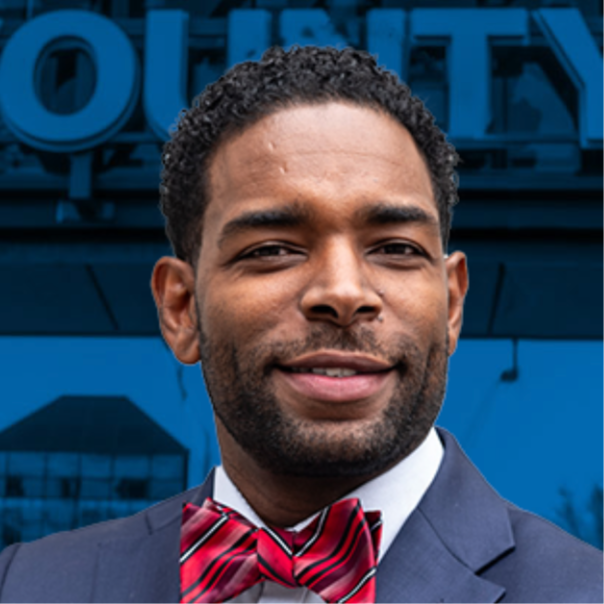AJC/ACC Voter Guide - Local & Legislative Questionnaire

Completed by Ali Carter
on April 20, 2024
What is your name?
Ali Carter
When is your birthday?
November 9, 1977
Tell us more about yourself.
Born in Chicago, Ali Carter began his political journey as a "Soldier for Stroger" in John Stroger's campaign for Cook County board president. Simultaneously pursuing an acting career, he then relocated to Atlanta. In 2008, Carter joined Andre Dickens' team, helping secure his position as an at-large Atlanta City Council member. He stayed active in Atlanta's political landscape. Carter addresses diverse issues, from infrastructure to social justice, earning respect for his dedication and problem-solving skills. With a background in entertainment and a passion for advocacy, Carter aims to move Fulton County forward by championing the people's agenda.
What office are you running for?
Fulton County Commissioner, District 6
What is your party affiliation?
Democrat
Attach a photo of yourself
https://branch-production-bucket.s3.amazonaws.com/images/candidates/1718289578841_IMG_0359%202.JPG
Attach your resume or CV.
https://branch-production-bucket.s3.amazonaws.com/images/candidates/1718289578683_Ali%20Carter%20RESUME.pdf
Where did you go to school?
- DuSable High School, 1992-1996 - West Virginia State, 1996-1997
Provide the link to your campaign website.
www.votealicarter.com
What is your job/occupation?
Actor
What city/neighborhood do you live in?
South Fulton
Is this your first time running for office?
Yes
What experiences have best prepared you to hold elected office?
My involvement as a "Soldier for Stroger" in the campaign for Cook County Board President John Stroger in Chicago gave me experience that exposed me to grassroots organizing, coalition building and the vital importance of constituent engagement. I then pursued a career in acting and this presented me with a unique set of challenges and opportunities. These highs and lows of the entertainment industry taught me invaluable lessons in perseverance, resilience and self-discovery. I was also a director of constituent services to the chief of staff during Atlanta Council member Andre Dickens' mayoral campaign.
What would be your top priority upon winning office?
Immediately convene meetings with key leadership and stakeholders to address the most pressing issues. This proactive approach allows us to identify challenges early on and begin laying the groundwork for effective solutions. My focus would be addressing the issues surrounding our jails and animal services. These are critical areas where systemic improvements are needed to ensure the safety, well-being and fair treatment of all individuals and animals under our care. I am committed to promoting social mobility and creating initiatives aimed at economic empowerment, access to education and job training, affordable housing and health care.
What actions would you take to enhance government transparency and trust in government?
1. Regular community engagement: Attend neighborhood meetings and Neighborhood Planning Units consistently to hear and address community concerns directly. 2. Open communication: Keep constituents informed through newsletters, social media and town hall meetings. 3. Public Information: Share government activities, budgets, and decisions openly online and through public records. 4. Ethical Leadership: Uphold high ethical standards and accountability measures to prevent corruption. 5. Community Feedback: Listen to and incorporate citizen input through advisory boards and oversight committees.
Do you believe Georgia elections are secure and what additional security measures can be taken?
I believe the security of Georgia elections is important and can be tightened. 1. Paper ballot audit trails: Keep a paper record of votes for verification. 2. Regular audits: Conduct audits to double-check election results. 3. Cybersecurity updates: Continuously update cybersecurity measures to protect against online threats. 4. Educate voters: Teach voters about security measures and registration processes. 5. Collaborate with agencies: Work with federal and state agencies to share information and improve security.
What is government's responsibility to ensure affordable housing?
1. Prevent discrimination: Enforce laws against housing discrimination to ensure everyone has fair access. 2. Regulate to prevent displacement: Create rules to prevent longtime residents from being pushed out of their communities. 3. Engage with communities: Listening to residents' needs and involving them in housing decisions. 4. Create affordable housing: Implementing programs and incentives to make housing more affordable. 5. Protect against predatory practices: Enforcing laws to stop unfair practices that exploit or harm residents.
Do you believe public access to public records is sufficient in your jurisdiction and, if not, what steps do you support to remedy that?
Yes, I believe they are very easily accessible and transparent.
